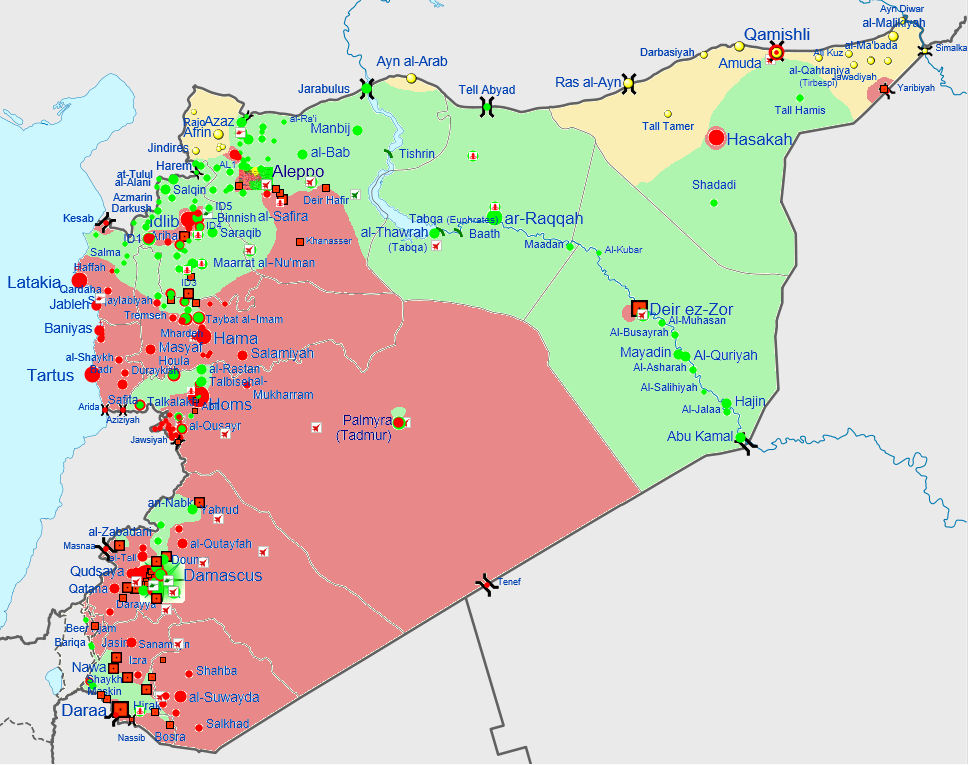|
As I wrote in my previous papers about Syria and the Arab revolutions, we can think that the current civil war began with a misunderstanding of the same kind as Tiananmen in China. Reformers excited by international news (the fall of the Berlin Wall for China) believed their country was ready for reforms. The local authoritarian regime reacted quite softly at first, then became harsher, and eventually everything got out of hand. Elsewhere, I also reminded the transition from riot to peaceful demonstration. It's not immediately given as one might think.
The real question is not whether or not chemical weapons have been used. There is a limit to symbolic games. Besides the question of who used them, it should means that the Assad army can continue to kill with conventional weapons, but has no right to use weapons of mass destruction. And it's not very realistic to expect a cornered power will not use all available means.
As I said: "The insurgents were wrong about the determination of Assad and about the reaction of the West. One reason for this error is obviously the result of the Libyan precedent. Assad did not want to end up like Gaddafi." I also pointed out that last time, the Russians (and the Chinese) were deceived by NATO, and Russia does not want to lose its last naval base in the Mediterranean sea (one could think some people continue to play the Cold War game). Moreover, Russia could militarily support its Syrian Ally to prevent intervention and would assert its authority. This is perhaps the trap where the Westerners have already felt.
The solution is not to "punish Assad" by allegedly surgical strikes obviously aimed to weaken the government side. That doesn't make any sense (besides the disastrous colonial vocabulary) to simultaneously declare that it's not for his deposition. As for the recent French intervention in Mali, it can be used for training soldiers and as a demo for arms sales. But wars always contain an element of uncertainty when opponents resist quite foolishly. And Western public opinion is more sensitive to losses than military ratios accepted by the high command.
The real issue is what I asked a year ago: "How to stop a civil war?" Syria is aflame, cities are destroyed, the front line is more or less stabilized, as shown in a Wikipedia map:

Both sides are armed. They will not act as if the civil war hadn't already caused 100,000 dead and return home, giving back their weapons to the government. A civil war will take time to be forgotten.
The work of the UN should not be to justify interventions, neither the communication of Presidents, quite powerless against the economic crisis, while the medias play war mongers to get beautiful images rebroadcasted for thirty years.
The solution is simple. The UN could oversee the partition of the country, the displacing of populations from landlocked zones, the repatriating of refugees, and could send peacekeepers on the front line based on the above map. The country is going to remain divided for a while anyway. Why not internationally endorse the situation in the hope that the reconstruction process will reseal links later.
Jacques Bolo
|